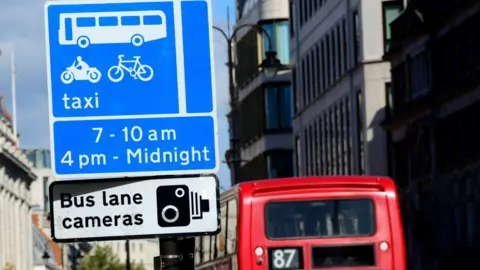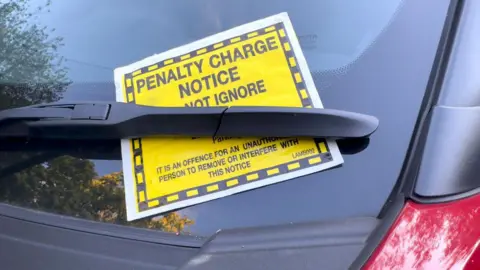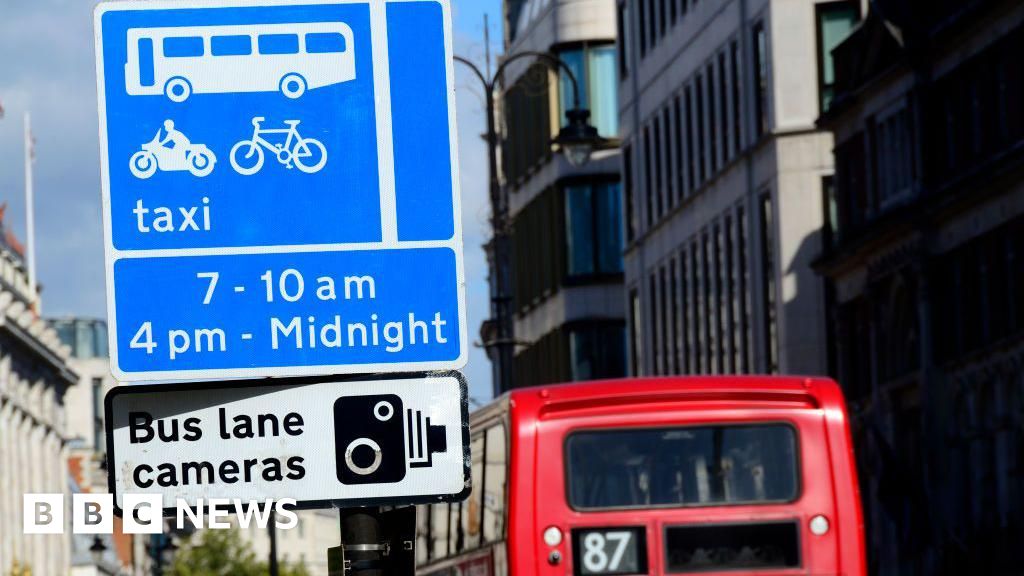 Getty Images
Getty ImagesLondon’s roads are “paved with fines” as income from penalty charge notices (PCNs) soars by 57% in five years, the AA said.
Transport for London’s (TfL) received £89.3m in the 2023-24 financial year for perceived offences on its red route network, up from £56.8m in 2018-19, according to its draft annual report seen by PA Media.
The AA, a motoring organisation, has accused the transport authority of relying on drivers to break the rules in order to maintain its income.
TfL has said it is “essential” traffic moves “safely and efficiently” on its network and the fines were meant to be a deterrent.
The AA attributed the rise to the increased use of new and more sophisticated CCTV cameras and TfL’s decision in January 2022 to uplift the value of penalty charge notices (PCNs) from £130 to £160.
The authority issues PCNs for violations on red routes involving bus lanes, yellow box junctions, banned turns, stopping and parking, often relying on evidence from CCTV cameras.
There are around 367 miles (590km) of red route roads in London, meaning income from fines reached an average of nearly £244,000 per mile in 2023-24.
‘Massive income’
AA head of roads policy Jack Cousens said: “Dick Whittington would now say that London’s streets are paved with fines.
“So massive is the income from road traffic enforcement on London’s red routes that to lose it would leave a huge black hole in TfL finances.
“It seems TfL may need drivers to offend and generate income instead of complying with road rules.”
The draft annual report also indicated that TfL made an operating surplus of £138m in the past financial year.
Siwan Hayward, TfL’s director of security, policing and enforcement, said: “We are committed to keeping London moving safely and efficiently, and reducing delays on London’s red routes, which is also essential to ensuring a reliable bus network for everyone.”
She said compliance on red routes is “vital in achieving these aims”.
 Getty Images
Getty ImagesShe insisted PCNs were used as an “important deterrent to drivers” rather than to “generate income”.
She added: “They are only issued to the small number of drivers who contravene [the rules], and the number of drivers who receive more than one PCN for reoffences remains relatively low.”
TfL was told by a panel of adjudicators in May 2023 to stop handing out fines based on camera evidence that said drivers illegally stopped on red routes without single or double lines, because this contravened government guidance.
A judicial review ruled in TfL’s favour in November, but AA research found that the transport authority does not contest the majority of appeals from drivers issued fines for stopping on red routes.
Mr Cousens said: “These PCNs could have been cancelled when drivers first make representations to TfL and argue that the fines are invalid or that there were mitigating circumstances.
“Instead, they are forced to spend time and money going to an appeal where the fine disappears.”
He said another concern is that 90% of paid fines are paid within two weeks to half the rate “even if they have doubts about them”.
“It would seem that TfL banks on that behaviour, rejecting representations and saying that ‘if you don’t like it take it to appeal – where in most cases we won’t contest it’,” Mr Cousens added.
PCNs are reduced to £80 if paid within 14 days.
Ms Hayward said TfL handles representations and appeals “fairly and in line with the rules”.
She continued: “In many cases, claims at the appeals stage are uncontested by TfL due to additional evidence being provided to the tribunal which was not presented in initial representations to TfL.”


